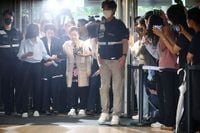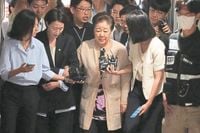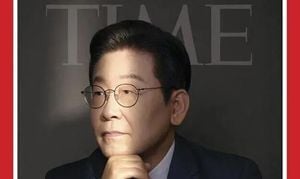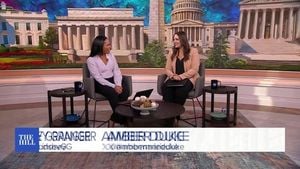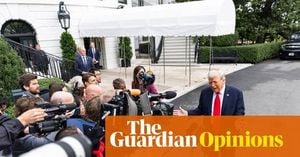On September 17, 2025, the usually reserved corridors of Seoul’s prosecutor’s office pulsed with anticipation as Han Hak-ja, the 82-year-old leader of the Unification Church, finally appeared for questioning. Han, the widow of the church’s founder, Sun Myung Moon, had previously declined three summonses, citing recovery from a recent heart procedure. As she arrived, aides supported her while a crowd of reporters pressed in with questions—though Han offered little more than a weary, "I’ve been unwell," before making her way inside, according to Reuters.
Han’s appearance marks a dramatic new chapter in a sprawling investigation that has already shaken South Korea’s political and religious worlds. At the center of the probe are allegations that the Unification Church, formally known as the Family Federation for World Peace and Unification, bribed Kim Keon Hee, the wife of ousted President Yoon Suk Yeol, as well as conservative lawmaker Kweon Seong-dong, in a bid to secure lucrative business favors—including participation in a Cambodian development project. Both Kim and Kweon, along with a church official accused of orchestrating the scheme, are now behind bars, and the country is transfixed by the unfolding scandal.
The case is being spearheaded by special prosecutor Min Joong-ki, whose team is investigating whether the church tried to leverage Kim’s influence for its own advantage. Kim, once a prominent figure in social circles, is suspected of receiving luxury gifts—including two Chanel bags and a diamond necklace—worth about 80 million won (roughly $58,000), according to Reuters. The gifts were allegedly delivered through an intermediary: a Unification Church official who is now under arrest and indictment on anti-graft charges.
Kim’s lawyers have vigorously denied the allegations, insisting that she never accepted such gifts. Han, too, has denied any personal involvement, calling the accusations “false information.” In a video statement read by an associate on August 31, Han declared, “False claims are being circulated that our church provided illegal political funds under my instructions. I have never instructed any illegal political requests or financial transactions.” The church itself has expressed regret that a former senior official may have acted improperly, but maintains that he did so without authorization. "It was deeply regrettable that we failed to prevent the misconduct of a former senior official," the church said, as reported by Reuters. "But we deny any involvement in the case."
Meanwhile, the investigation has ensnared some of South Korea’s most powerful figures. Former President Yoon Suk Yeol, who was removed from office in April 2025 after issuing a martial law decree that lasted only a matter of hours, is currently detained and facing trial on insurrection and rebellion charges. The decree, issued on December 3, 2024, was swiftly overturned by the country’s liberal-led legislature, but the political fallout has been profound. Yoon’s wife, Kim Keon Hee, was jailed and indicted last month on a raft of criminal allegations, including the bribery case and a separate stock price manipulation scheme involving a local BMW dealership, according to the Associated Press.
The scandal has also swept up Kweon Seong-dong, a staunch Yoon loyalist and member of the People Power Party. On the same day Han appeared for questioning, a Seoul court issued an arrest warrant for Kweon, citing concerns he might destroy evidence. He is suspected of receiving 100 million won (about $72,400) in bribes from the church. Kweon has denied any wrongdoing, and the legislature recently voted to lift his immunity to arrest, clearing the way for his detention.
The Unification Church, founded in 1954 by Sun Myung Moon, has long been a lightning rod for controversy. Moon, a self-proclaimed messiah, built the church into a global movement with millions of followers and a vast network of business interests. The church is perhaps best known for its mass weddings—sometimes pairing thousands of couples from different countries in stadiums or gymnasiums—and for its staunch anti-communist stance. Despite this, Moon famously met with North Korea’s founder Kim Il Sung in Pyongyang in 1991, in a bid to promote engagement between the two Koreas, as detailed by the Associated Press.
The church’s history is dotted with allegations of brainwashing, manipulative recruitment, and financial exploitation of followers—accusations the church has consistently denied, arguing that all new religious movements face similar scrutiny in their early years. In 1982, Moon was convicted of tax evasion in the United States and served a prison term in New York. Over the decades, the movement forged ties with prominent conservative leaders worldwide, including U.S. Presidents Richard Nixon, Ronald Reagan, George H.W. Bush, and Donald Trump.
But it’s not just in South Korea where the church is under fire. Its Japanese branch is currently fighting a Tokyo District Court order from March 2025 that threatens to strip it of legal status and tax-exempt privileges. The order followed a government investigation into manipulative fundraising and recruitment tactics that allegedly harmed families and instilled fear among followers. The church has faced hundreds of lawsuits in Japan, but managed to avoid official censure for years—until the 2022 assassination of former Prime Minister Shinzo Abe. The accused assassin reportedly targeted Abe because of his links to the Unification Church, blaming the group for bankrupting his family. The killing triggered a wave of scrutiny into the church’s practices and its deep connections to Japan’s ruling Liberal Democratic Party.
If the Japanese court ruling stands, the church could lose its tax-exempt status and be forced to liquidate its assets. The church has appealed, calling the decision "regrettable and unjust."
Back in Seoul, Han’s decision to appear for questioning—despite her fragile health—was framed by the church as a gesture of respect for “the law and legal procedures,” according to the Associated Press. As Han made her way through the throng of journalists, a church official called out, "Mother, hang in there," capturing the sentiment of many followers who see her as a spiritual leader under siege.
For now, South Korea watches as the investigation continues, with no clear indication of whether prosecutors will seek Han’s arrest. The case has exposed the tangled web of relationships between religion, business, and politics in the country, and it’s anyone’s guess where the next revelation might come from. But one thing is clear: the Unification Church, and its formidable leader, are unlikely to fade from the headlines anytime soon.
